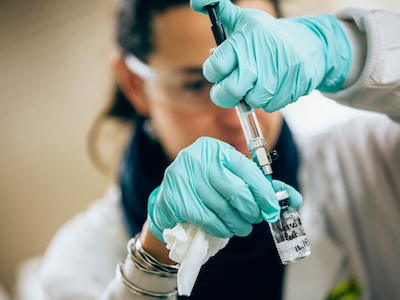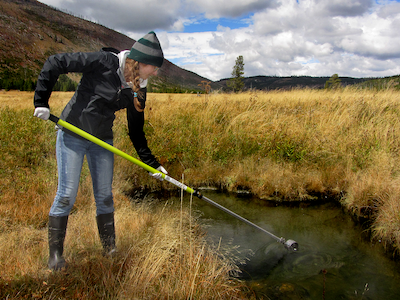Research Areas
Research Interests
Our department's research focus areas and strengths include:
- Biofilms
- Biofuels, Biomass Conversion
- Materials: Corrosion, Composites, Fuel Cells
- Biomedical Diagnostics
For more details, check out this listing of faculty research interests. Faculty profiles include lists of recent publications.
Ryan Anderson
Transport phenomena, Clean energy systems, PEM fuel cells, Energy storage and conversion
Christine Foreman
Carbon flux through bacterial communities, Biofilms
Paul Gannon
High-temperature corrosion, Advanced materials, Education
Robin Gerlach
Biotechnology, Environmental Engineering, Bioremediation, Energy, Bioenergy, Algal
Biofuels, Microbially Enhanced Coal Bed Methane Production, Carbon Sequestration,
Urinary Tract Stones, Kidney Stones
Jeff Heys
Computational fluid dynamics, biotransport, computer modelling, biofilms
Stephanie McCalla
Microfluidics, disease diagnostics, RNA/DNA/protein separation, detection, and quantification,
mass transport in living systems
Brent Peyton
Fundamental and applied research in the areas of biofilms, biofuels, extremophilic
(thermophiles) bioprocessing, and in situ biocatalyzed heavy metal transformations.
Stephanie Wettstein
Catalysis and separations
Research Entities
These entities are listed because of their strong affiliation with our department, but our research is interdiscplinary and often involves other research entities in the college as well as other user facilities at MSU.

The Center for Biofilm Engineering has been a world leader in microbial biofilm research since it was established at MSU in 1990. CBE's multidisciplinary research teams develop beneficial uses for biofilms and find solutions to industrially relevant biofilm problems, with applications in medicine, food safety, energy and much more.

Research Opportunities
It is our intention to support all qualified doctoral students with either RA or TA positions (subject to availability of funding).
- Available to undergraduates at MSU and other schools.
- Students gain hands-on research experience working with a faculty adviser.
- Provides residence hall lodging, reimbursement for travel to/from Bozeman, and $5,000 stipend.
- Runs June through August.
- Application deadline is generally in February.
Doing research is a great way to learn about a topic and gain valuable experience that can aid in applying to graduate programs or future employment.
Undergraduates interested in gaining research experience should contact faculty members directly based on their area of interest.
If you are a prospective graduate student, we invite you to learn about our graduate programs!
The engineering college's research resources webpage also provides an overview of research opportunities for faculty and students.
